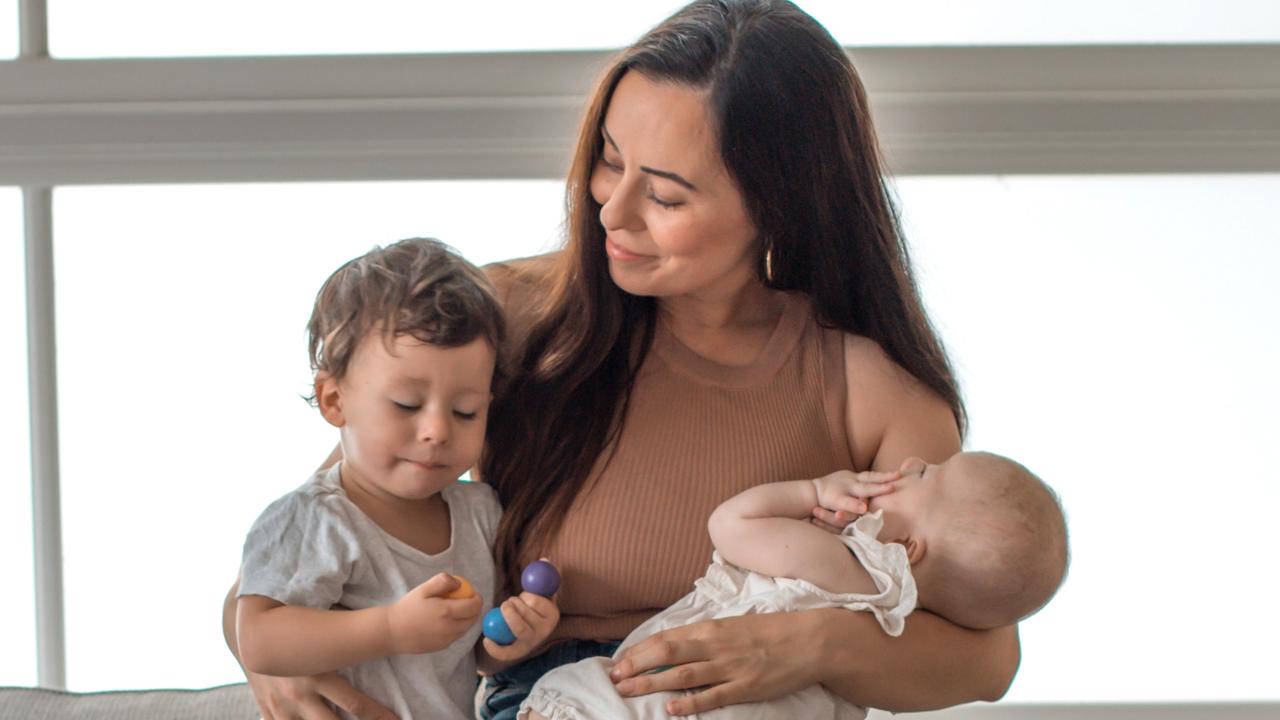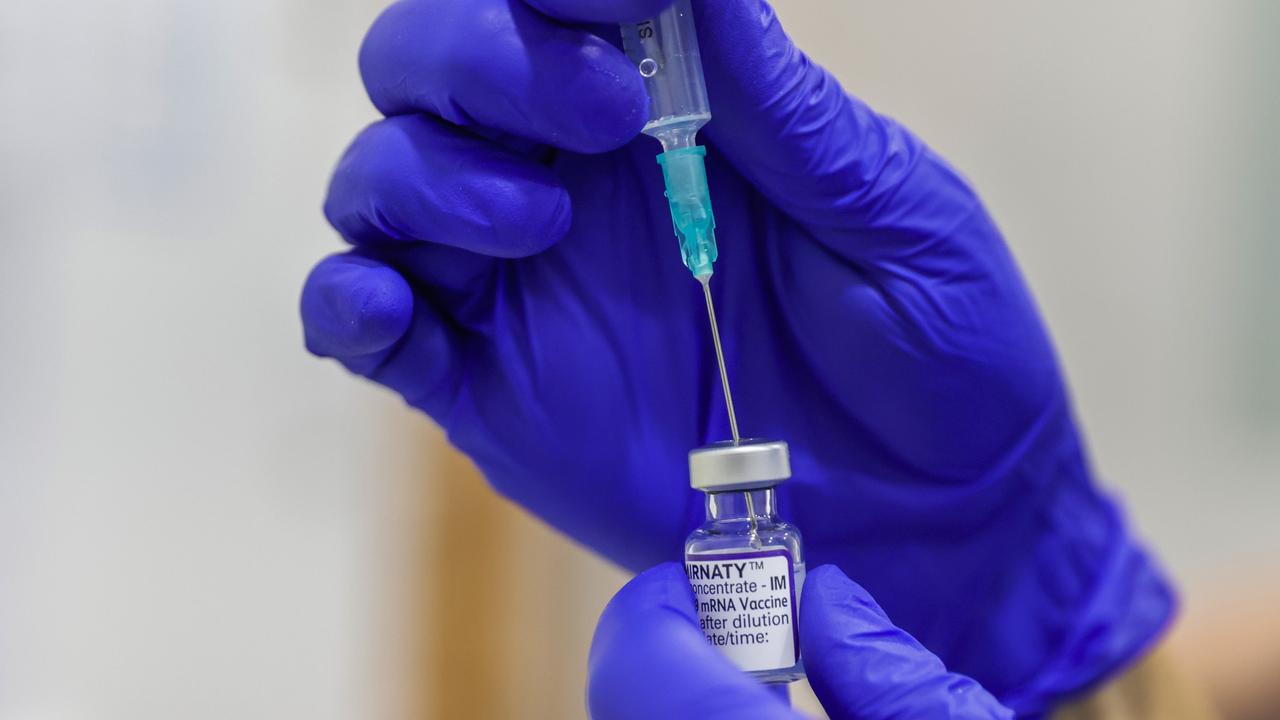AstraZeneca Covid-19 vaccine limited to Australians over 60
Health officials have lifted the AstraZeneca vaccine age recommendation to over 60s and issued advice for those who’ve received their first jab. Here’s what you need to know.

NSW Coronavirus News
Don't miss out on the headlines from NSW Coronavirus News. Followed categories will be added to My News.
Australian health officials have lifted the recommended age for AstraZeneca Covid-19 vaccine recipients to 60.
The Australian Technical Advisory Group on Immunisation (ATAGI) on Thursday advised the federal government the AstraZeneca vaccine now be administered to people aged 60 and above out of an abundance of caution due to an extremely rare blood clot side effect.
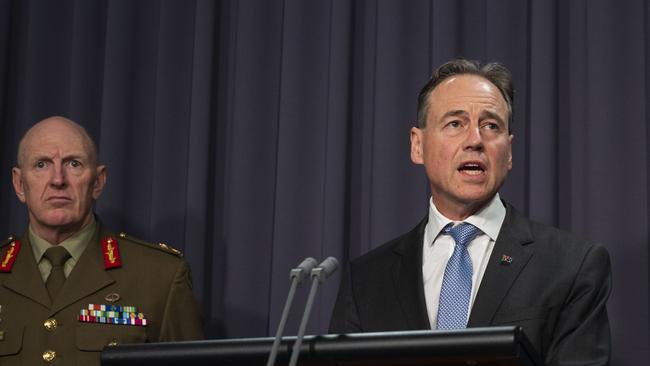
Health Minister Greg Hunt said the government “fully accepts” the ATAGI advice and would now extend the availability of the Pfizer vaccine to 50 to 59-year-olds.
“AstraZeneca remains recommended for those aged 60 and over based on the much higher risk of illness and death from Covid-19 in this age group, and the lower risk of this condition,” he said.
Mr Hunt said the Pfizer vaccine would be rolled out across 1,300 GP clinics in July to boost supply for everyone aged 40 to 59 who are now eligible for that vaccine.
“This month we’re expected to receive 1.7 million and next month that will grow to 2.8 million doses, and that’s what will allow us to expand the coverage,” he said.
Mr Hunt said the government remained “on track” to offer every Australian a vaccine during the course of 2021, with about 32 million Pfizer doses and 10 million Moderna doses expected to be delivered by the end of the year.
About 2.1 million Australian in the 50 to 59-year-old age group have not yet been vaccinated and will now be offered Pfizer.
However the 3.8 million Australians who have already received an AstraZeneca vaccine, including the estimated 840,000 who are under the age of 60, are still advised to have the second dose.
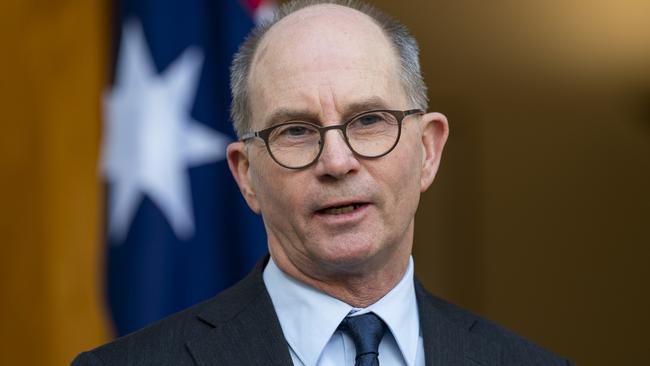
Chief Medical Officer Professor Paul Kelly said the risk of a blood clot from the first dose of AstraZeneca was 3.1 per 100,000 people aged under 50, 2.7 for people aged 50 to 59 and 1.4 for people over 60.
Of the more than 16 million second doses administered in the UK, there was only one case of blood clots for every 1.15 million vaccinations, which is significantly lower than the rate for first doses.
Prof Kelly said the decision to raise the age recommendation was also based on the comparative risk of dying of Covid-19, which was significantly higher for people over 60.
A person over the age of 70-years-old has a one in ten chance of dying from Covid-19.
“The (blood clot syndrome) is very very rare,” Prof Kelly said.
“So there is a risk benefit equation … that looked at that in the context of the epidemiology here in Australia, thinking ahead bout what the epidemiology might be (in the future).”
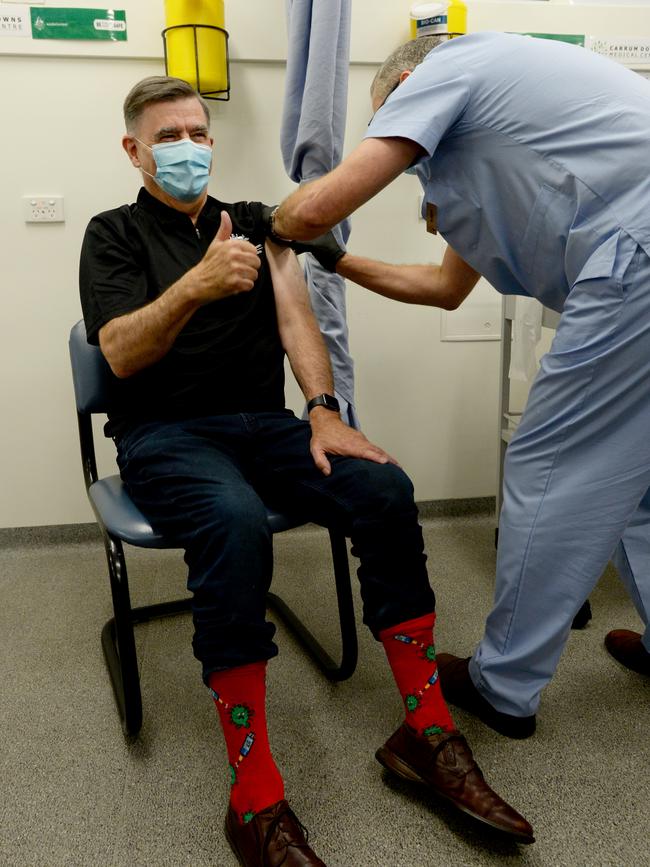
Health Department secretary Professor Brendan Murphy, who has had both doses of AstraZeneca, urged everyone who is eligible for AstraZeneca to continue to get it.
“We’re doing so this time on the basis of a highly precautionary approach given our epidemiological situation,” he said.
Prof Murphy also said it was important people got their second dose of AstraZeneca, even if under the age of 60, to ensure they were fully protected as the risk of a clot was extremely low.
There have been 60 cases of bloodclots linked to the AstraZeneca out of more than 3.8 million vaccine doses, and two deaths.
Covid-19 Task-force Commander lieutenant General John Frewen said he was now looking to move Australia to the next phase of an information ad campaign to encourage people to get vaccinated.
“We are coming through an information campaign period where we were informing those most risks, about how they could get vaccinated, (and) will be now moving into encouraging those next cohorts to get vaccinated,” he said.
“We will look at all of the best ways to do that.”
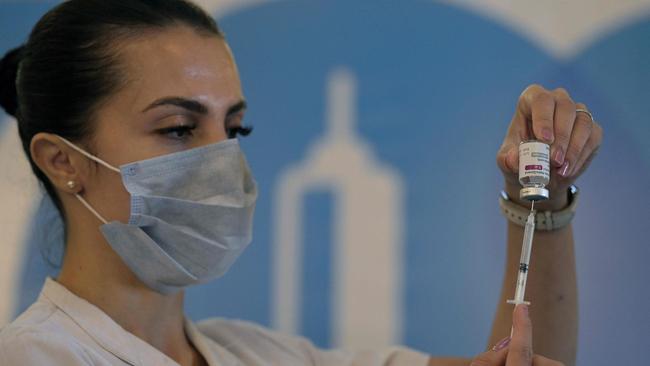
In April ATAGI initially set the age recommendation to 50-years-old and above due to the risk of younger people developing blood clots with a low platelet count, known as thrombosis with thrombocytopenia syndrome (TTS).
Two Australian women have died from TTS after having the AstraZeneca vaccine since the rollout began.
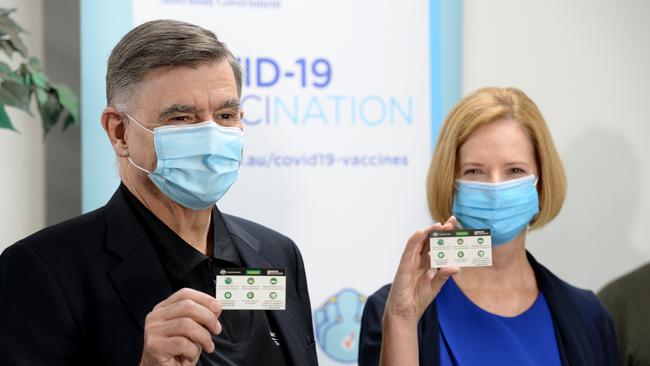
Last week a 52-year-old Australian woman died from brain bloodclot that experts said was “likely linked” to the AstraZeneca vaccine.
In April, before the age recommendation for the vaccine was lifted to 50, a 48-year-old woman died from a clot.
Since then, medical professionals in Australia have been able to identify possible cases of TTS quickly as more has been learned from vaccine rollouts around the world.
Currently the rate of clotting incidents is low, at 3.1 cases per 100,000 first doses for those aged under 50, and 1.8 cases for those who are older.
For people aged 50-59, the rate of clotting is 1.9 cases for every 100,000 doses.
There have been 48 confirmed and probable cases of TTS in Australia, 15 of which were more serious clots in the brain and abdomen.
The remaining 33 were more typical clots found in the legs and lungs.




